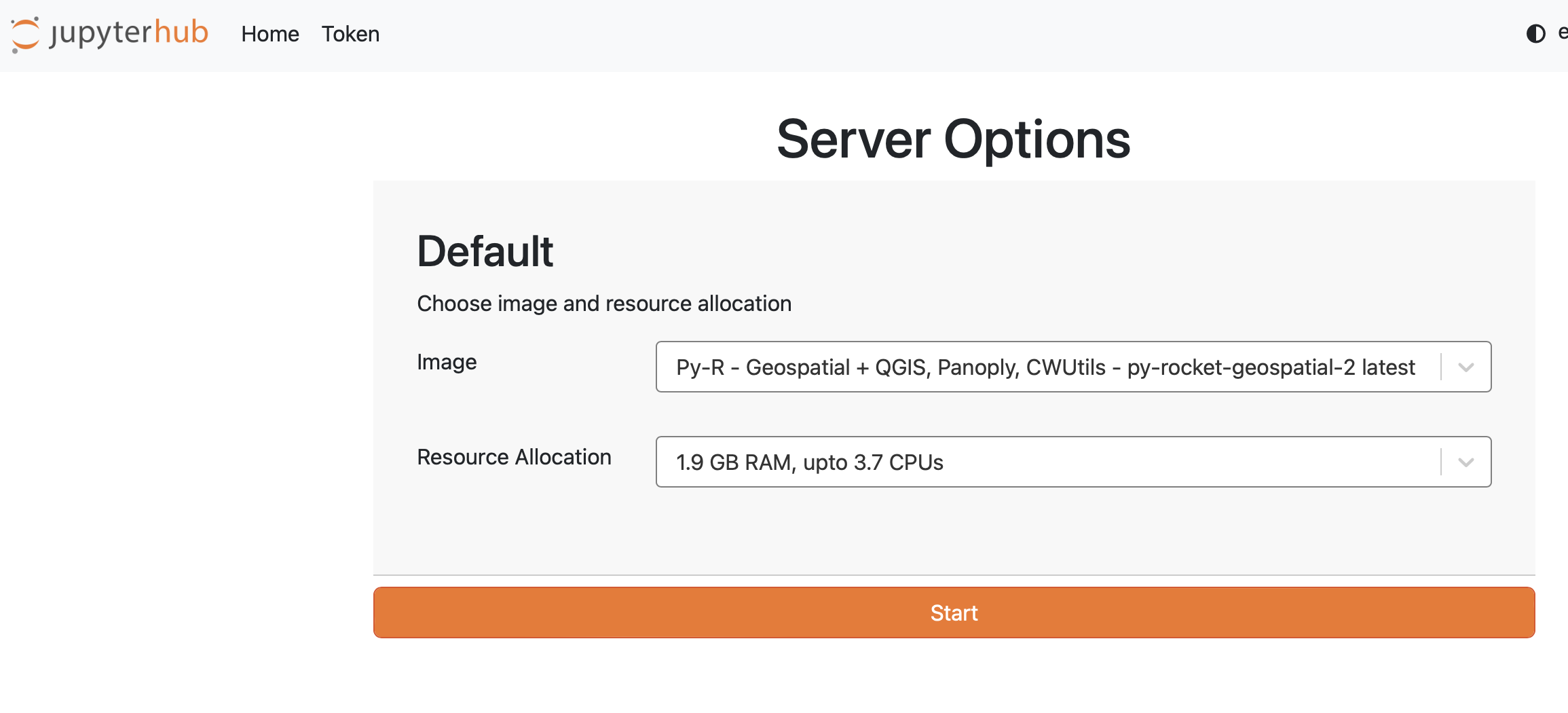Checklist#
Required setup#
Attention
Please make sure to find some time to go through the below material before the hackweek.
Here is a checklist of things you need to do in advance:
EarthData Login#
Each participant will need an Earthdata login to access NASA data. You will need to know your Earthdata username and password. If you do not already have an Earthdata login, then navigate to the Earthdata login page, register, and record username and password somewhere for use during the hackweek.
GitHub Account#
GitHub enables us to collaborate on code across teams in a web environment. If you do not already have a GitHub account, then navigate to GitHub, enter your email address and click on the green ‘Sign up for GitHub’ button. Be sure to save your username and password somewhere for use during the hackweek.
Hackweek JupyterHub#
We will be using a pre-provisioned compute environment for the hackweek which can be accessed via a web browser. You will not need to install anything. Please follow these instructions which will guide you through gaining access to the JupyterHub.
Watch this video to get an orientation on our JupyterHub.
Sign in by navigating to the JupyterHub. Instructions to sign in are in our Slack channel here.
You will see server options. To start, you can stay with the default image and RAM. It can take several minutes for new servers to launch on the cloud. Once things are spun up, you will see your very own instance of a JupyterLab environment.

You will have access to your own virtual drive space under the /home/jovyan directory. No other users will be able to see or access your data files. You can add/remove/edit files in your virtual drive space. You will also have access to the shared-public folder (read and write access). These are shared spaces so please make sure not to delete files from here unless they are yours.
To save our community money, when you are finished working for the day it is helpful for you to explicitly stop your server before logging out of your JupyterHub session. To shut your server down immediately when you’re exiting your session please select “File -> Hub Control Panel -> Stop my Server” then you can click the “Log Out” button. We ask this because when you keep a session active it uses up AWS resources and these resources cost money per hour of use. If you forget this step, though, the server will shut down automatically after 90 min of no use. Logging out will NOT cause any files under your home directory to be deleted. It is equivalent to turning off your desktop computer at the end of the day.
Pre-HackWeek Learning (Optional)#
If interested, please review course material from prior events:
2022 PACE course What’s behind the curtain of the NASA PACE mission? All lecture recordings and presentation PDFs can be accessed here.
2024 PACE hackweek All lecture recordings and presentation PDFs can be accessed here
2025 PACE hackweek All lecture recordings and presentation PDFs can be accessed here
Introduction to PACE data for Water Quality Monitoring (ARSET) here
Monitoring HAB indicators for aquaculture (ARSET) here
Hyperspectral data for land and coastal ecosystems here
Applications of PACE data for for aquaculture and fisheries management. Background. here
Introduction to using earth data in the cloud for scientific workflows: PACE hyperspectral ocean color data here Tutorials have links to run in Colab. You do not need to install anything.
Abundance of good material on the PACE Applications website. Check out the quarterly newsletters.
How do I run the tutorials if I don’t have Python and all the packages installed? Once you are in the Fish-PACE slack, we’ll provide a link to our workshop compute environment (a JupyterHub). However, you can run 95% of the tutorials in Colab. nice intro to Colab for complete beginners.
